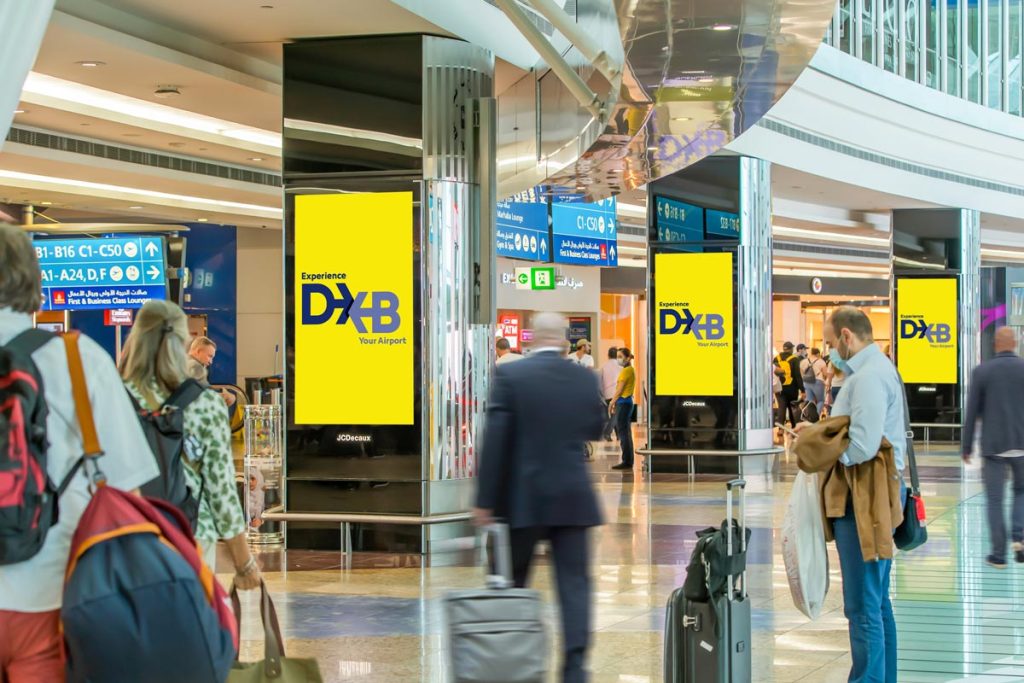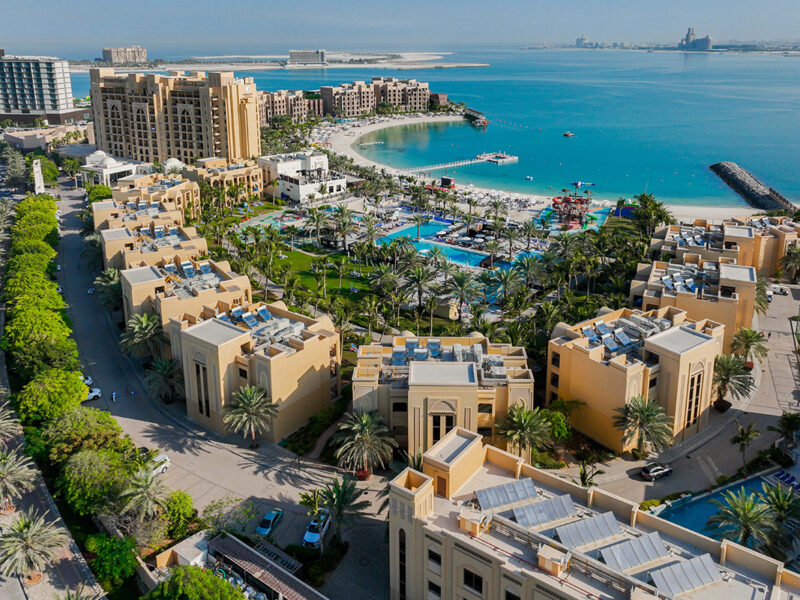With the UAE lifting most coronavirus restrictions, travel demand is seeing “exponential growth” and is currently at 75 percent of what its pre-coronavirus, the CEO of Dubai Airports Paul Griffiths told Arabian Business.
And while normally demand “is flat or fairly even” at this time of the year, Griffiths expects this momentum to increase as the summer season approaches so long as there is political stability by then.
“Although for this year we’re only projecting about 56 to 57 million travellers, I hope that that might prove conservative because I do believe that the restoration of traffic will be much more robust than we think it is at the moment,” said Griffiths.
“The confidence in travel is returning now and if we can keep the world politically stable for a while, and allow people to get the confidence to travel, they are booking and traveling,” he added.
As such, Dubai Airport are back to “pretty much operating at full capacity” with most outlets and restaurants functioning and a “much higher revenue spend per head than we’ve ever had before,” said Griffiths.
In explaining this heightened demand for travel, Griffiths said: “Close to 3.9 billion people, or half the world’s population, have been under some form of lockdown and travel restriction for two years. When you talk to people, the thing that’s on everyone’s lips is their desire to travel, to go and see family and friends, to make connections they’ve lost etc.”
“Travel is an amazingly aspirational commodity for people at the moment and we’re seeing that exponential growth, particularly in people coming to and from Dubai,” he added.
This demand is expected to continue through to the summer, normally a slow season in the UAE, as transfer traffic opens up and an increasing number of people look to Dubai as a place to live.
“The demographic of Dubai has changed post-Covid-19. We’ve become a place where people know they can come to work and live permanently. Because of the way the government handled the Covid-19 outbreak, the way they sponsored vaccinations and the way they protected citizens, they sent a very clear message that we were open and welcoming to everyone and I think we’ve become the Monaco of the Middle East,” said Griffiths.

“The summer traffic will also coincide with the opening up of Asia and Australasia. Transfer traffic at the moment is only about 30 percent of the total while normally it’s about 50-50. That ratio will change over time and we’ll end up in a position where the equalisation of that will happen just as the summer starts and those transfers pick up. This is all predicated on people still feeling safe. If the issue with Ukraine is resolved by then that will enable the travel industry to recover but at the moment it feels like we’re going from one major crisis to another,” he continued.
“Dubai has positioned itself as a very desirable city to live and work and people are flocking to stay here. If we can just keep all of those things developing and pushing the number of visitors to come here – and just keep going with that philosophy- then Dubai’s aviation industry will continue to be the success story it’s been so far. We’ve been the world’s largest airport for the last eight years and we plan on keeping that crown forever now,” added Griffiths.
At the moment, travellers are predominantly solo and under 30 with the senior market, the backbone of the industry, proving to be more “risk-averse,” explained Griffiths. It is within this context that Griffiths believes that some of the business travel market will be lost to video conferencing.
“I think the energy to travel will be there but we will have to see what happens in the longer term as it really depends on the current situation economically,” he said.
“If companies are still looking at their travel budgets with the same view they were before, then I think business travel will be very much part of the demographic of the typical traveller. However, a lot of financial directors across the world will be looking at the effectiveness of video conferencing now that it’s been tested and anchored. Whether first class and business travellers will be as numerous as they were before remains to be seen,” continued Griffiths.

Faced with such increased demand on travel, and with the anticipation of more of the same, Griffiths raised the question of whether resources can be mobilised fast enough to meet that.
“As Dubai Airports, what we did right at the beginning of the pandemic was recognise that there was an opportunity to change the business model from directly employing our staff to going into partnership with external companies on a service base,” he said.
“That meant we were able to encourage them to hire people and put them through training, and then effectively charged them to us on a performance-based contract. So we were able to get good people that we could train and keep them motivated. The customer service standard has been raised enormously as a result of that,” continued Griffiths.
While some of the adjustments made during coronavirus could fade away with time, digitalisation of the travel experience is here to stay, said Griffiths.
“Digitalisation for us is an ongoing programme we’d started pre-pandemic with the paperless digital strategy, because for the travel industry it’s something that should have happened many years ago,” he said.
“There’s no reason why things like passports and other forms of travel documents won’t be fully digitised soon. So it won’t be long before you will be able to leave your home and arrive at your destination on the other side of the world without having shown anyone anything, so long as you’ve got some form of digital token to validate your eligibility to travel. The technology is here; it’s just a question of getting it harmonised across the world and the slow bit is the adoption of it,” added Griffiths.








